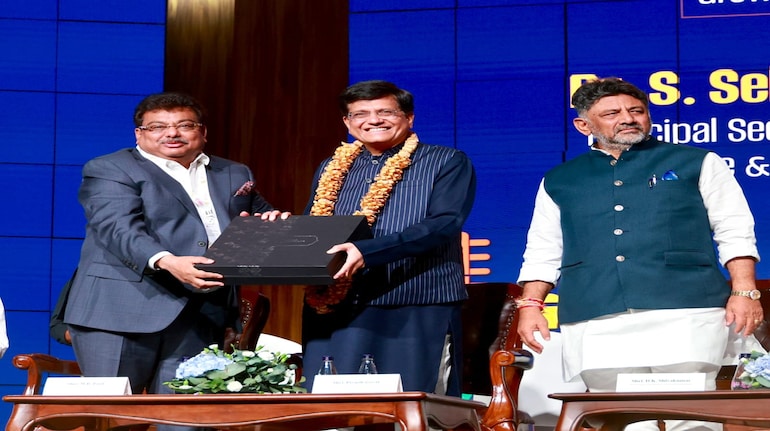Karnataka’s Clean Mobility Policy 2025-2030
The Karnataka Clean Mobility Policy 2025-2030 was launched at the Global Investors’ Meet – Invest Karnataka 2025 by Energy Minister K.J. George. This policy aims to attract investments of ₹50,000 crore and create one lakh jobs in the state. Karnataka seeks to reinforce its leadership in the electric vehicle (EV) sector and become a hub for clean mobility innovation in Asia. The policy supports reducing carbon emissions and improving air quality.
Subsidies and Financial Incentives
- Karnataka offers subsidies of up to 25% on capital expenditure for clean mobility projects.
- Bengaluru Urban and Rural districts are eligible for a 20% subsidy.
- These financial incentives encourage businesses to invest in clean transportation.
Infrastructure Development
- The policy plans to establish 2,600 new EV charging stations.
- This adds to the existing 5,403 stations, supporting over 2.5 lakh registered EVs.
Clean Mobility Clusters
- Karnataka will develop clean mobility clusters in Gauribidanur, Dharwad, and Harohalli.
- These clusters will bring together manufacturers, suppliers, and research centres.
- This approach encourages collaboration and innovation in the EV sector.
Collaboration and Skill Development
The policy aims to collaborate with global institutions to enhance innovation. It includes expanding EV-focused training programmes in technical institutions. This initiative will create a skilled workforce for the clean mobility industry.
Last-Mile Connectivity
The policy encourages the adoption of electric rickshaws and auto-rickshaws for last-mile connectivity. This is particularly important in Bengaluru, where public transport integration is essential.
Public Transport Enhancements
Measures will improve public transport, including shared bus services outside BMTC’s jurisdiction. This flexible permit system aims to enhance short-route services, making public transport more accessible.
Private Transport Initiatives
The policy promotes transitioning private transport to clean mobility vehicles. E-commerce companies are encouraged to replace their fleets with electric options by 2030. This aligns with national green transportation goals.
Retrofitting Existing Vehicles
Existing vehicles can be retrofitted to meet safety standards. The Transport Department will provide guidelines for retrofitting approvals. This initiative supports the transition to cleaner transport options.
Involvement of Private Sector and Schools
Private companies and schools will be encouraged to switch their fleets to electric or hydrogen-powered vehicles. This includes school buses and company cars, promoting a broader shift towards clean mobility.
Innovation and Research Support
The policy introduces tax exemptions for electric vehicles under the Karnataka Motor Vehicles Taxation Act. A venture capital fund will support startups focusing on clean mobility technologies and battery innovations.
Month: Current Affairs - February, 2025
Category: Government Schemes Current Affairs







